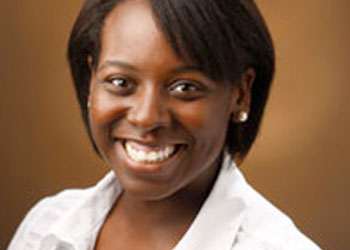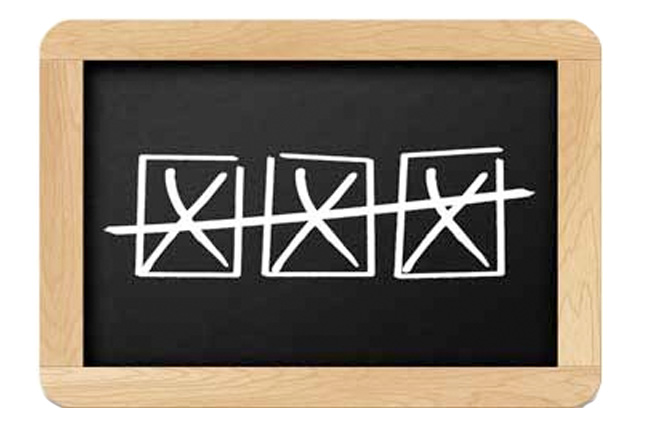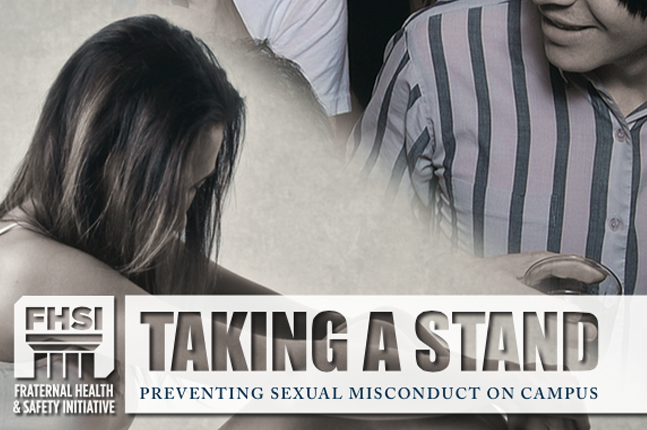By Krystal Clark
Just Say No! Many of us are adept at saying no to bad things. However, we are living in an over committed and over programmed world in which the new campaign spread throughout colleges should be, “Just Say No…to good opportunities.”
I’ve discovered that one can’t do everything all the time. In fact, there is only 100% of you a day and despite what your coach, parent, or teacher may have told you when you were little, you can’t give 110% of yourself to anything. It is mathematically impossible. There is only one whole you and you are often being pulled in multiple directions. Therefore, as you engage in activities throughout the day that 100% of you dwindles. 20% of yourself to this class, 30% of yourself to this committee, 10% of yourself to your friends, 20% to another leadership position, 10% of yourself to the gym, and before you know it there is 10% of you left for things that you need at least 60% of yourself to accomplish. This is when stress happens and this is when you experience burnout. You are doing too much.
I get it, you care and you want to do many different things. As an advisor you are my favorite student and my biggest headache. You’ve been told your whole life that you are a leader and therefore you have a strong desire to “lead” things. People come to you and ask for your support, tap you for leadership positions and recommend you for seats on boards. Your friends know that they can always depend on you to step up and get things done and you feel an obligation to satisfy all expectations. You’ve even convinced yourself that you work best when you are under pressure and stressed out.
But, what always ends up happening? Something doesn’t get done. Even if it does get done it isn’t your best work. You inevitably will double or triple book yourself. You get tired but don’t have time for rejuvenation. Your friends want to do something fun but you’ve got so much work to do that you can’t even fathom heading out on the town for a good time and even when you do take that chance you are thinking about the consequences of having fun. You neglect to take care of yourself and so you become ill which greatly affects your level of performance. You pull all- nighters to cram for a test or finish a paper. You yearn for a vacation and complain to those around you about how busy you are all the time. Sound familiar?
I was you. I’m not going to lie, at 28 I’m sometimes still you. I vividly remember one of my mentors in college encouraging a group of student leaders, including myself, to seriously reflect on all that we were involved in on campus. Make a list and go through each activity. While you are examining this list think about those things that you really value–your passions. Also, think about those activities in which you are learning the most, and ultimately think about those activities that are actually helping you become the person you want to be–your ideal self. For those things that don’t make it into these categories you need to let them go.
I decided to follow her instructions and in the process I gave up one of my jobs, and three extracurricular activities. I crossed them off the list, sent in my resignations, and honestly never looked back. I kept the things that fit into the categories above and I have to tell you a weight was instantly lifted off my shoulders.
Even now, I have to sit down and think about things prior to making a commitment and I’ve had to walk away from things that are great professional and personal opportunities. I’m not going to lie—I still don’t enjoy this process, but I know that in the end I’m making the best decision for myself and the rest of the organization.
College students engage in résumé building in a way that has become quite reckless. It is not only hurting you and adding stress to your life but it is adding stress to those that are depending on you to prioritize that commitment. All of your commitments can’t possibly be number one; something is bound to fall by the wayside. If I could get students to understand that the quality of your involvement and your articulation of that quality is much more important than the quantity of things you are involved with, then I think I would be eligible for retirement simply on merit alone.
Be okay with the fact that you aren’t a superhero. Sometimes you actually can’t do it all and most of the time you can’t do it all extremely well. I have learned that people appreciate it when you are honest about your disinterest or inability to prioritize that particular commitment and when you take initiative to step down from a role instead of prolonging your subpar involvement.
Take time to engage in intentional reflection about your commitments. Think about those things that you love to do versus those things that have become a burden. The next time someone asks you to do something, instead of saying “Yes” immediately, think about responding with, “Let me get back to you on that. Sounds like a great opportunity but I just want to make sure I have time to commit and give it my best effort.” Stop filling out applications just because you were sent an email with a link. Do you really care about that project? Are there things that you want out of that experience that you are already getting from existing opportunities?
If you are struggling with this exercise chat with those that advise you in your roles. Are they seeing strain on your involvement? Have there been moments where they have felt you didn’t prioritize that specific role? How has that affected others in the organization?
Be honest with yourself. Believe me; not being an officer in that one organization isn’t going to be the detriment of your life post college.
Involvement in co-curricular activities is never going to be the reason that you get your college diploma and in fact, though Phi Delta Theta is a worthwhile fraternal organization I don’t believe it has been granted the privilege of disseminating college degrees. Remember, that in the term “student leader” student comes first. What you chose to involve yourself with after that word is completely up to you, but I strongly encourage you to be discerning about where you expend your daily 100%. Yes and no are two incredibly powerful words; please learn to use them wisely.
Krystal Clark, M.Ed. is a native of Portsmouth, Virginia and received her BA in Sociology and Psychology from The College of William & Mary in Williamsburg, VA. After graduation she ventured to College Park, MD where she completed her M.Ed. in College Student Personnel at the University of Maryland, College Park. During her time at Maryland Krystal served as a Student Affairs Residential Fellow in the Office of Fraternity & Sorority Life and continued her work in this functional area post-graduation at Duke University in Durham, NC where she served in the role of Program Coordinator. In February 2010 she became a proud member of Delta Delta Delta and in June 2011 she began as the Associate Director of Greek Life at Vanderbilt University in Nashville, TN. She is an active volunteer in the Association for Fraternity/Sorority Advisors, the Junior League of Nashville, and Big Brothers Big Sisters of Middle Tennessee.





